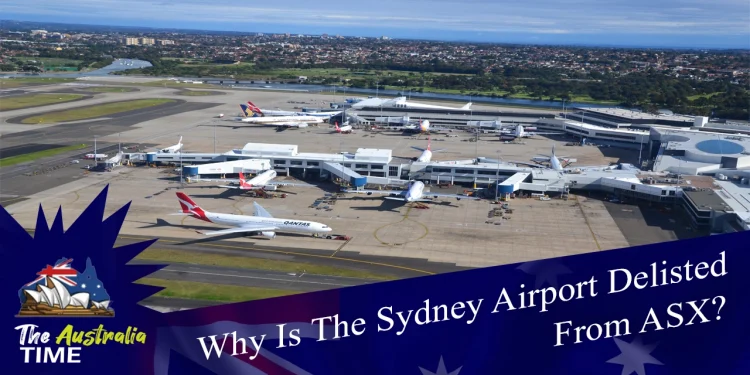Any business on the stock market can be delisted for one reason or another. That’s true for the stock exchange in Australia and outside of our national borders. Recently, Sydney Airport was delisted from the Australian Security Exchange Ltd. (ASX). You might think that the airport and its business weren’t competent enough to be included in the stock market list in Australia, which is not the case.
However, the primary reason behind the exit is that the airport has been sold. An association of different organisations, named Sydney Aviation Alliance (SAA), has taken over the airport and is in charge of the operations now. The deal took place in the first week of March. It has been termed the largest corporate takeover in Australian history.
Total Volume of Sydney Airport Deal
The deal didn’t just happen all of a sudden. In fact, SAA has been interested in buying the airport since July 2021 and offered $22 billion initially, which the then operators declined. The alliance then raised the bid to $22.8 billion in August last year, again resulting in a rejection from the airport operators. The deal, however, has been finalised for a sum of $23.6 billion, to which the shareholders agreed. It resulted in a takeover in March 2022. Every shareholder got $8.75 per share of what they’ve sold to SAA.
Primary Reasons Behind the Deal
There are several reasons why the airport’s management decided to sell it, and a primary one could be the Sydney Airport share price, which the previous management feared to fall in the future. That is because they incurred heavy losses recently. In fact, they had been facing that since the outbreak of Covid. However, besides the share price, two other reasons drove the airport’s management to accept the deal, such as uncertainty about international and local travel due to future Covid waves and strong competition from the Western Sydney Airport, which will be fully operational in 2026. We’re going to discuss these two in this article. Kindly read it carefully to understand it fully.
Closure of International Borders Amid Covid-19 Pandemic
A major reason the airport’s management mentioned the extended closure of the international borders amid the Covid-19 pandemic. The virus has badly affected global aviation. It resulted in a significant decline in passenger traffic and, subsequently, revenue for airports across the globe.
Though the Australian government has lifted the restrictions on international travel, the aviation industry is still waiting for its revenues to go back to where they were before the pandemic. Under such circumstances, it is difficult to predict when international tourism and aviation profits will return to their pre-pandemic state. Therefore, the decision to sell the airport was taken to avoid further losses.
Competition from the New Western Sydney Airport
Another reason that forced the airport’s management to sell it is strong competition from the new Western Sydney Airport, which is scheduled to be fully operational in 2026. The airport is being built to cater to the growing demand for air travel in western Sydney. It will be a major competitor to Sydney Airport, located 53 kilometres away.
The new airport will have the capacity to handle up to 82 million passengers per year when it runs at its peak around the year 2063. It will also have two runways and will be able to operate 24 hours a day. Therefore, the competition posed by the new airport was another significant factor that led to this enormous deal.
Uncertainty About International Travels Due to Suspected Future Covid-19 Waves
As we mentioned earlier, the closure of international borders due to the Covid-19 pandemic is one of the primary reasons for the decision to sell the airport. The virus has badly affected global aviation, resulting in a significant decline in passenger traffic and revenue for airports across the globe, also affecting the Sydney Airport share price. There is still a lot of uncertainty about when international travel will return to its pre-pandemic state. Some countries are still imposing travel restrictions, and it is difficult to predict when they will be lifted. This uncertainty about the future of international travel was another factor that contributed to the decision to sell the airport.
To conclude, the revenues and profits have been a cause of concern for previous management, who have been facing heavy losses since the outbreak of Covid. The sale of Sydney Airport is a major development in the Australian aviation industry. It will have far-reaching implications for the country’s economy and tourism sector. Only time will tell how this decision turns out to be. We hope for the best.
That is all about the airport being sold and delisted from the ASX, which is a big development, without any doubt. We hope we have provided you with valuable information about what’s happening in Australia and how events have unfolded recently. The Australia Time writes and posts about various topics like technology, business, life, fashion, health and fitness, etc. Keep visiting our website for more interesting news and reading material.
















